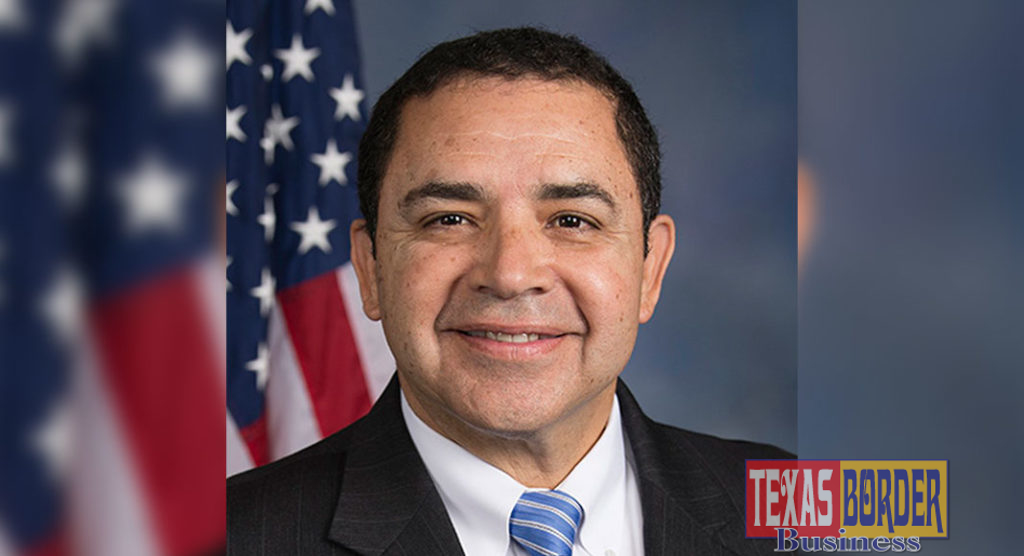
Texas Border Business
Washington, D.C. – Congressman Henry Cuellar (TX-28) released the following statement regarding the report, published by the Department of Homeland Security (DHS) Office of Inspector General, that described overcrowding and prolonged detention of children and adults in the Rio Grande Valley:
“The vast increases in families and children coming across our southern border has presented unique challenges to DHS and Department of Health and Human Services (HHS). At-risk populations at U.S. Border Patrol holding facilities have been subject to overcrowding and prolonged detention due to CBP holding, ICE detention, and HHS shelter capacities reaching their limit.
“Congress acted to alleviate these issues by providing $4.6 billion in emergency funding just last week. With this funding CBP will be able to build temporary facilities for migrants at border stations and ports of entry and provide basic necessities like food, clothing and medical treatment and for HHS to expand their licensed shelters and take custody of migrant children from CBP or ICE before releasing them to the care of family members or other sponsors.
“Since 2014, I have fought to increase transparency and improve standards, inspections, and healthcare services at immigration detention facilities in the U.S. On the U.S. House Appropriations Committee, I have secured language in to ensure compliance with CBP’s National Standards on Transport, Escort, Detention, and Search (TEDS) which includes provisions regarding proper treatment and care of detained individuals. I have also included an amendment directing ICE’s Office of Detention Oversight to conduct unannounced inspections of all ICE family residential centers at least twice a year, which will be promptly published on ICE’s website. It is our duty to provide humane and dignified treatment to every person that comes to America’s border.
“We need to find remedies to improve conditions at detention centers. That is why I fought to ensure Congress passed the FY19 Emergency Supplemental Appropriations bill last week. Providing humanitarian aid to these children and families should not be a partisan issue. The $4.6 billion we’ve allocated will address the unprecedented surge of migrants at the southern border and ensure improved humanitarian care for migrant children and families. As the Vice Chair of the Homeland Security Subcommittee on Appropriations, I will continue to demand accountability and transparency from the Administration on the care of the migrant children and families at our southern border.”
The FY19 Emergency Supplemental Bill includes:
Funding and Protocols for Immigrations and Customs Enforcement (ICE)
- $35.9 million for transportation of unaccompanied children to Office of Refugee Resettlement custody;
- $12 million for migrant transportation related to medical needs, court proceedings, and transfers from CBP custody; and
- $10.2 million for background investigations for contractors and personnel, and for facility inspections.
Funding and Protocols for Health and Human Services (HHS)
- $2.9 billion Refugee and Entrant Assistance
- Addresses funding shortfalls for the remainder of FY19 and anticipated funding needs through the first quarter of FY20 for the Unaccompanied Children program.
- $866 million for State-Licensed Shelters, which funds State-licensed shelters in the Office of Refugee Resettlement (ORR) network
- This includes $212 million to expand capacity in small- and medium scale State-licensed facilities to reduce reliance on influx shelters.
- $100 million for Legal Services, Child Advocates, and Post-Release Services, which will provide dedicated funding to restore and increase legal services for unaccompanied children, as well as the Child Advocate program which provides support for particularly vulnerable children, and post-release services through non-governmental organizations.
- $9 million for Federal Field Specialists and Case Management Services, which provides funding to hire additional Federal Field Specialists and expand case management services for the purposes of more expeditiously placing children with sponsors, as well as to hire project officers to develop a discharge rate improvement plan to be delivered to the Committees within 120 days of enactment.
- Places Strict Conditions on Influx Shelters – Limits the use of influx shelters to emergency scenarios and requires influx facilities to do the following within specified timelines —
- Come into compliance with the same requirements in the Flores Settlement for State-licensed facilities;
- Maintain specific ratios of staff-to-children; and
- Provide access to legal services.
- Provides emergency funding on the condition that HHS maintains operational directives issued since December that have been helping to accelerate the identification and approval of sponsors for unaccompanied children.
- Protects sponsors and potential sponsors from DHS immigration enforcement based on information collected by HHS during the sponsor vetting process.
- Directs the Secretary to prioritize use of community-based residential care and State-licensed facilities.
- Prevents HHS from placing an unaccompanied child in an unlicensed influx facility if the child is under 13 years old; does not speak English or Spanish; has special needs; is pregnant or parenting; would have a diminution of legal services as a result of the transfer; or if the child is not expected to be placed expeditiously with a sponsor.
- Requires facilities caring for unaccompanied children to allow oversight visits from Members of Congress without a requirement for prior notice.
- Requires HHS to provide to Congress and make publicly available monthly reports on unaccompanied children who were separated from their parents or legal guardians.
- Requires HHS to submit a spend plan within 30 days and every 60 days thereafter.
- Requires HHS to report to Congress within 24 hours if an unaccompanied child dies in ORR custody.
Read Congressman Cuellar’s Appropriation Language on Detention Centers from FY15-FY19 here.
Read current CBP and HHS standards for detention facilities here.














